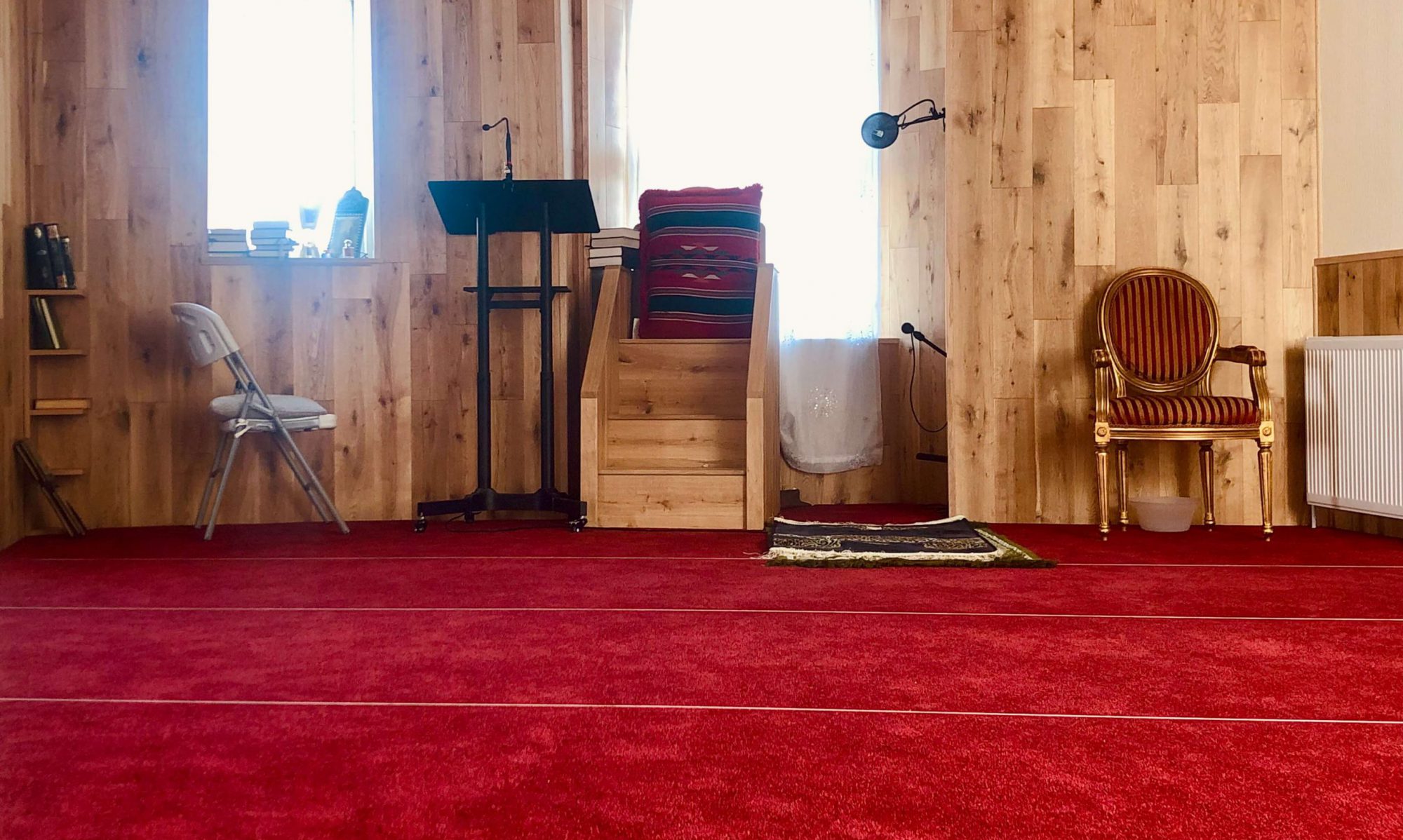Written by Noorislam Uddin (MArch)
أَنِ ٱعْمَلْ سَـٰبِغَـٰتٍۢ وَقَدِّرْ فِى ٱلسَّرْدِ ۖ وَٱعْمَلُوا۟ صَـٰلِحًا ۖ إِنِّى بِمَا تَعْمَلُونَ بَصِيرٌۭ
[Quran 34:11]
Áni a‘mal säbigöẗiṇ waqoddir fie alssardi, waa‘malūa ṣöliḥana, íṇnie bimā ta’malūna baṣīruṇ
The ‘weight’ of a letter in Arabic relates to the nature of its macroj ‘exit point’ from the mouth, and its corresponding vowel ṣifaḧ ‘characteristic’. Though there is plenty for English-speakers to struggle with when learning to speak Arabic, vowels need not be one of them. Vowels are sounded by gently exhaling while vibrating the vocal tract; they are then distinguished by the shape of the lips during this process.
The Arabic vowels ‘a‘, ‘u‘, and ‘i‘, are expressed in writing with harokāt diacritics, and letters [ ا ] Alif, [ و ] Wau, and [ ي ] Yâ respectively. Though Arabic vowels are commonly taught as being three, there are more precisely four, as the Arabic fatḥaħ/Álif is actually used to represent two English vowel sounds. To understand this, read out for example, the words ‘bat‘ and ‘ball‘. Did you notice how each vowel sounds different, despite being spelled with the same letter? English spelling is notorious, and we could have more intuitively written ‘boll’ instead of ‘ball’. However, this example helps us understand more about the Arabic fatḥaħ/Álif, which is also used to represent two vowel sounds. In English, these two sounds are conventionally referred to as ‘light a‘, and ‘heavy a‘. There is also a subtle distinction that the trained ear can hear between the Arabic light and heavy ‘i‘, and even less so between light and heavy ‘u‘. The reason why these two vowel sound weights are usually not distinguished in Arabic education however, is because the sound is technically attached to the letter before it; it is actually the consonants that are categorised as either [ مُفَخَّم ] mufaccom ‘heavy‘ (giving the following vowel a heavy sound), or [ مُرَقَّق ] muroqqoq ‘light‘ (giving the following vowel a light sound). This ‘heavy a‘ sound in Arabic is practically an ‘o‘ sound, like that of ‘lock‘, and is thus represented as an ‘o‘ in the transliteration of this book. It should be sounded as such whenever a heavy Arabic consonant is followed by the fatḥaħ/Álif.
There are 2 forms of tafcīm heaviness explained below:
- Permanent heaviness (Tafcīm ul’lāzim)
- Temporary heaviness (Tafcīm ul’āriḍ)
1.a) Permanent heaviness (Tafcīm ul’lāzim)
Priority: Mandatory
Summary: There are 7 Arabic consonants that carry a ‘permanent’ heaviness, in all their attached vowel sounds due to the nature of their macōrij exit points. These are [ خ ] Cô, [ ص] Ṣōd, [ ض ] Ḍōd, [ ط ] Ṭô, [ ظ ] Ṿô, [ غ ] Goin, and [ ق ] Qōf. The letters can be summarised in the Arabic mnemonic [ خُص ضَغطٍ قِظ ] cuṣ ḍogṭin qiṿ. They are articulated by curving the tongue downwards, as if there is a ‘heavy’ ball placed on it, so allowing air to fill the mouth while the letters are pronounced.
E.g.
أَنِ ٱعْمَلْ سَـٰبِغَـٰتٍۢ وَقَدِّرْ فِى ٱلسَّرْدِ ۖ وَٱعْمَلُوا۟ صَـٰلِحًا ۖ إِنِّى بِمَا تَعْمَلُونَ بَصِيرٌۭ
[Quran 34:11]
Áni a‘mal säbigöẗiṇ waqoddir fie alssardi, waa‘malūa ṣöliḥana, íṇnie bimā ta’malūna baṣīruṇ
وَٱلَّذِى جَآءَ بِٱلصِّدْقِ وَصَدَّقَ بِهِۦٓ أُو۟لَـٰٓئِكَ هُمُ ٱلْمُتَّقُونَ
[Quran 39:33]
Waallavie jã-a bialṣṣidqi waṣoddaqo bihĩ úulãíka humu almuttaqūna
أَلَا يَعْلَمُ مَنْ خَلَقَ وَهُوَ ٱللَّطِيفُ ٱلْخَبِيرُ
[Quran 67:14]
Álā ya’lamu man colaqo waHuwa allLaṭīfu alCobīru
1.b) Temporary heaviness (Tafcīm ul’āriḍ)
Priority: Recommended
Summary: There are 2 Arabic consonants that carry a ‘temporary’ heaviness, in that their proceeding vowel sounds are only heavy in certain circumstances. These are [ ر ] Rô, and [ ل ] Lām. The Rô is only heavy when followed by a fatḥaħ ‘o‘ or ḍommaħ ‘u‘. The Lām is only heavy when it is in the grand name ‘Allöh‘ God, except when this word is commenced with the kasroḧ ‘i‘ vowel, for example in ‘liLlähi‘.
E.g.
بِسْمِ ٱللَّهِ ٱلرَّحْمَـٰنِ ٱلرَّحِيمِ
[Quran 1:1]
Bismi Alllähi alrRoḥmäni alrRoḥīmi
بَرَآءَةٌۭ مِّنَ ٱللَّهِ وَرَسُولِهِۦٓ إِلَى ٱلَّذِينَ عَـٰهَدتُّم مِّنَ ٱلْمُشْرِكِينَ
[Quran 9:1]
Barõátuṇ ṃmina Alllöhi warosūlihĩ ílae allavīna ‘ähadttuṃ ṃmina almuṡrikīna
مَّا يُقَالُ لَكَ إِلَّا مَا قَدْ قِيلَ لِلرُّسُلِ مِن قَبْلِكَ ۚ إِنَّ رَبَّكَ لَذُو مَغْفِرَةٍۢ وَذُو عِقَابٍ أَلِيمٍۢ
[Quran 41:43]
Ṃmā yuqōlu laka íllā mā qod qīla lilrrusuli miṅ qoblika; Íṇna Robbaka lavū magfiroẗiṇ wavū ‘iqōbin álīmiṇ
Allah knows best.
Last updated:
Further tajwíd enhancement study:
- Arabic 101 [Last Updated November 10, 2023], The BEST 30-day Tajweed Program (Intermediate). https://www.youtube.com/playlist?list=PL6TlMIZ5ylgoA27YCmZYMCQCX7EUkfyHp.
- Tajweed.me [February 13, 2013], Tajweed Me All for Quran and Tajweed. https://tajweed.me/tag/tajweed-rules.
- Getquranic.com [November 1, 2021], A Quick Guide to Tajweed. https://www.getquranic.com/a-quick-guide-to-tajweed/#Ikhfaa_to_hide.
Jazak-Allah for reading. All knowledge, opinions, and translations expressed in our articles are the earnest study and reflections of the writer, prioritising honest interpretations of the Quran and authentic Hadith as evidence. We ask for forgiveness for presenting any information that comes to be incorrect or misleading, and accept that Allah is the Most-Knowing One.
